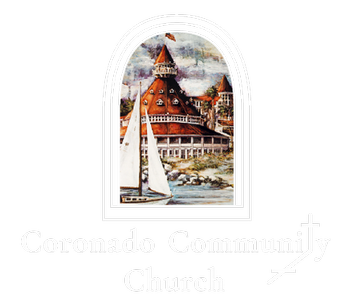Luke 13:10-17
A sermon by Pastor Eric Smith
Published On: August 21, 2022
A sermon by Pastor Eric Smith
Published On: August 21, 2022
The story is told of a young, newly promoted executive of a bank who made an appointment to talk with the executive who was retiring to seek some counsel and advice.
Sir, she began, as you know, I do not have the outstanding qualifications you had for this job. And since you have been so successful as the chief executive Officer of this bank, would you please share with me some of the insights that have contributed to your success?
The older man replied, Young woman, I can answer you in two words: Right Choices.
The young woman said, Thank you sir, but how does one come to know which is the right choice?
The older man replied, One word young woman, Experience.
The young woman said, But how does one get experience?
The older man replied, Two words young woman: Wrong Choices.
When I was appointed as the senior minister of the Foothills United Methodist Church the congregation numbered 1300 people. The staff numbered 35 people. Prior to that church I had been pastor of a 500 member congregation, so this was bigger… exciting to me… and I had plans for that church.
An impediment to my plans was a music director who could not produce the program that I knew that church needed. She didn’t have the skills nor the ability. After a year with the congregation (it’s always good to wait a year) I talked about the church making a change in music leadership. I spoke with church leaders and with the personnel committee. They all supported the plan I had for the change and we were in complete agreement.
She had been in her position for 20 years and was of an age where stepping out would have been anticipated if not embraced by the congregation. I set a meeting with her. I shared with her what I thought and why and how we wanted to celebrate her ministry and how it might be done several months in the future.
This did not go over well.
I will spare you the details, but misinformation and accusation was fed through a network of her friends. Not a happy time. It all worked out eventually, I apologized to the congregation and to this person for my part in creating chaos, and we moved forward.
She did choose to retire a few months later, and, with new leadership, the music program and the church prospered.
I tell you this story because I was right about what I thought should happen for the church, but I was wrong in not placing high enough value on my relationship with her… and that turned out to be a big problem.
In the scripture passage, Jesus was teaching in a synagogue on Sabbath. A woman appeared who had, as the passage says,
a spirit that had crippled her for eighteen years.
She was bent over and was quite unable to stand up straight.
We don’t know what the problem was, it might have been spiritual… it was obviously physical because she was bent over.
When Jesus saw her, he called her over and said, “Woman, you are set free from your ailment.” When he laid his hands on her, immediately she stood up straight and began praising God.
Crippled and bent over for 18 years. And then set free. That must have been an amazing experience for everyone who was there. But not everyone wanted to celebrate.
Now, this is a no brainer for us. Of course Jesus healed her. He could do it, she needed it, no time like the present. Except for the Law. The Torah. The Law of God. 613 commandments… rules (if you will). About right and wrong. Observing these commandments… following these rules… kept a person in right relationship with God.
The commandments were understood to have been given by God.
One of these commandments was to honor the Sabbath. The interpretation of this commandment was that no work was to be done on the Sabbath. There had been centuries of commentary upon the commandments, including this one. It was the proper interpretation, it was the tradition of Judaism, and it was clearly understood by everyone that healing was work and it was not to be done on the Sabbath.
Jesus was all about the Bible. He honored and upheld Biblical law. The conflicts he had with religious leaders were over how to interpret it. This problem was not so much about specific points – although there were always specific points – rather what the issue was the underlying understanding of scripture. Two thousand years later we continue to have conflict about our underlying understanding of scripture.
What we want to know is What is God really like? What are God’s rules?
We’ve got the 10 commandments – the big ones – which are really only the first 10 of 613… here’s a few of them …
Remember the Sabbath day by keeping it holy We have holy football, baseball, and basketball for the pros, and club teams for kids. It’s pretty much a holy business day.
Honor your father and your mother Unless you don’t like them or you’ve had a falling out. Or you went with one over the other when they divorced.
You shall not kill Unless you are serving your country in the military or in law enforcement.
You shall not commit adultery No comment.
You shall not steal. Unless you are getting the better of someone in a business deal, or fudging tax return numbers …
You shall not give false testimony Until you do.
You shall not covet Except for the things that you just have to have.
Would we be better off with rigid observance of these commandments? Some say Yes. I think maybe… but rigid observance won’t work.
But what if God’s highest priority for people is not obedience to commandments?
What if it is something else?
What if God’s highest priority for people is love and care for both people and the earth?
What if commandments, rules, doctrine, tradition, and even scripture are all subordinate to the purposes of love?
What if God’s higher priorities are generosity and giving, restoration and healing, encouraging and renewing?
There’s a current TV commercial with Snoop Dog and a comic named Andy Samberg where the two are on a beach relaxing in Adirondack chairs with a bucket of Coronas.
Conversation takes place – Andy on his cell phone making plans. Snoop says give me that phone and he drops it in the ice bucket.
He says, the best plans are no plans… to which Andy replies, You know what Snoop Dogg? You might be right.
Snoop replies, I know that I am.
Well … let’s say God’s priorities are generosity and giving, restoration and healing, encouraging and renewing.
You know what Pastor Eric? You might be right.
I know that I am.
When commandments or laws or scripture are not seen as subordinate to generosity and healing and renewal they become ends in themselves, and we find people in absurd conflicts about whether they help someone in need or obey God. When those are the choices something is terribly wrong. (William Loader)
…ought not this woman,
a daughter of Abraham… bound for eighteen long years,
be set free from this bondage on the sabbath day?
The story of faith evolves. It has evolved, it is evolving, and it will continue to.
Biblical faith is really quite flexible. It has had to be in order to stay relevant for the past 4000 years. Remember that Jesus, in this example and in all of his examples, wasn’t trying to start a new religion. He was trying to upgrade Judaism to help people of faith evolve.
The commandments had to flex… they were not rigid. The setting free of a woman with a chronic health condition was both a challenge and a new way to see faith… and not everyone wanted that. Then or now.
It was a fresh application of ancient wisdom.
The leaders of the synagogue were right about the impropriety of healing on the Sabbath… but they were wrong because that woman was suffering and a remedy was available. Healing and wholeness.
So – Pastor Eric – it sounds like you’re saying I can’t turn to the Bible as absolute in matters of right and wrong. So where do I turn?
You turn to wisdom. We find it from many sources. The Bible is full of it – but it is set in it’s time… not ours. We take what the Bible says and consider it.
One author put it this way… The biblical story shows us that obedience to God is not about cutting and pasting the Bible over our lives, but seeking the path of wisdom…. (Peter Enns)
When I hear speeches from politicians or commencement speakers the most common source of authority for right and wrong is their mother… or father… or grandma… or grandpa… When a speaker says, My mother always said… that is an unimpeachable source of wisdom – and it most often came from a loving relationship.
Harry Emerson Fosdick was a great preacher of 100 years ago. He spoke to millions of people each week. One of his famous sermons was titled, Six Ways to Tell Right from Wrong.
Here is his 6-part paradigm for wisdom in decision making – I’ll make them brief….
In the first place, if a person is sincerely perplexed about a question of right and wrong, submit it to the test of common sense. Ask yourself is this a good idea or not.
Second…submit to a test of sportsmanship – is it good for everyone involved?
Third…submit to the test of your best self – you have depth, you have a conscience… ask your best self.
Fourth…submit to transparency – what if it went viral and everyone knew?
Fifth – consider the opinion of your most admired personality. Who do you look up to, who do you trust? What would they say about whether something is right or wrong?
And finally – look ahead… what will happen in the future if you make this choice?
And I will add one more… what would your mother say?
Let me leave you with this…
During World War II, in a rural area of France, a man died. His two friends wanted to give him a decent burial. They found a cemetery in a nearby village. It happened to be a Roman Catholic cemetery and the dead man had been a Protestant.
When the two friends found the priest in charge of the burial grounds, they requested permission to bury their friend, but the priest refused because the man had not been a Catholic. When the priest saw their disappointment, he explained that it would be wrong to bury him in a catholic cemetery. They could bury their friend outside the fence. This was done.
Sometime later they returned to visit the grave… but couldn’t find it. Their search led them back to the priest and, of course, they asked him what had happened to the grave. The priest told them that during the night after the burial of their friend he was unable to sleep because he had made them bury their friend outside the fence – and he was wrong about that. So he got up out of bed and moved the fence… to include the dead soldier.
A wrong choice, made right.
Our right choices are made in the wisdom of love.




